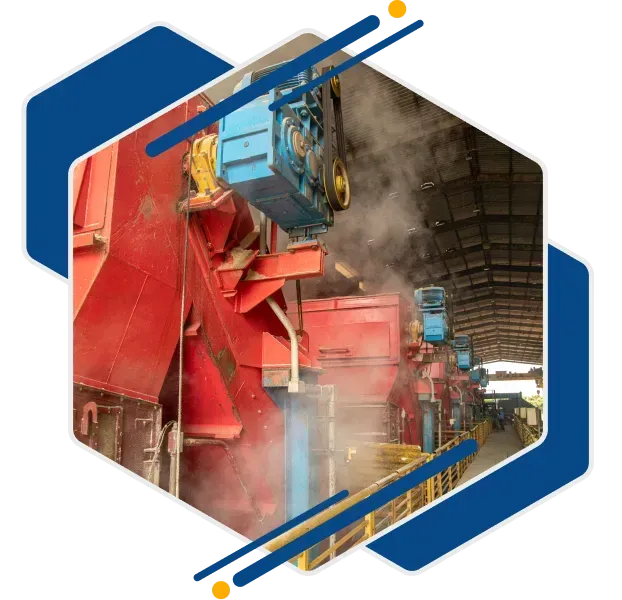Now Offering Spanish Safety Training!

Now Offering Spanish Safety Training!
Specialized Safety
NFPA 70E/Arc Flash Services
FSDAVCFEBFEVSDDVFSD
FSDAVCFEBFEVSDDVFSD
FSDAVCFEBFEVSDDVFSD
Specialized Safety - NFPA 70E/Arc Flash Services
Prioritize Safety Against Arc Flash Hazards with Expert Training

NFPA 70E training educates workers on recognizing arc flash risks and following strict safety standards. It covers the correct use of personal protective equipment (PPE), detailed safety protocols, and preventive measures to avoid electrical hazards. Interactive sessions strengthen emergency response techniques and the correct application of lockout/tagout procedures, enhancing safety awareness.
Employees engage in hands-on simulations that mirror real-life scenarios, ensuring thorough hazard control. This approach promotes compliance with evolving safety regulations, fosters a proactive safety culture, and helps prevent potential electrical incidents across job sites, maintaining a safer work environment.

Mastering Arc Flash Safety and Compliance On Site
Arc flash training focuses on ensuring workers understand the risks associated with electrical hazards. The curriculum includes detailed lessons on hazard assessment, emphasizing the identification of high-risk areas and potential arc flash triggers. Workers learn to implement safety controls effectively, ensuring the prevention of dangerous incidents.
Hands-on exercises are an essential part of the training, allowing employees to practice safety measures in realistic scenarios. Simulations cover critical procedures such as maintaining safe working distances, using PPE correctly, and responding to emergencies swiftly. This practical approach helps workers internalize safety protocols and builds their confidence in managing arc flash risks.
Regular evaluations keep the training relevant and effective. By updating lessons to align with the latest safety standards and incorporating feedback, the program adapts to changing site conditions. This dynamic approach not only supports compliance with NFPA 70E regulations but also fosters a culture of safety, reducing the likelihood of electrical accidents.
Trainings and Procedures for Electrical Safety

Electrical safety training involves thorough instruction on identifying electrical risks and implementing safety measures. Workers learn to maintain safe working distances and utilize protective barriers during high-risk tasks. Interactive exercises help solidify these practices, ensuring the safety protocols become second nature. The training also emphasizes the importance of proper PPE selection for different jobs, demonstrating how to use equipment effectively to minimize exposure to hazards.
Training assessments help refine worker response skills. These evaluations focus on how well workers apply learned skills in simulated emergencies. The assessments are tailored to mirror realistic situations, enabling workers to handle unpredictable conditions with confidence. Ongoing updates to the curriculum ensure it aligns with evolving safety standards, maintaining both compliance and a safer work environment for all.

Training sessions emphasize clear communication during electrical incidents, teaching workers to warn others of hazards, coordinate safe responses, and mitigate risks promptly. Instructors focus on teamwork to foster a collaborative safety culture, promoting a more unified approach to arc flash prevention. Workers are encouraged to share insights and experiences, which contributes to refining the training content and adapting it to unique job site challenges. This dynamic exchange of feedback allows for more realistic simulations, enhancing preparedness.
An adaptive program evolves with industry changes, incorporating lessons on updated NFPA 70E standards, emerging safety technologies, and advanced response strategies. Workers gain practical knowledge through hands-on drills, improving their confidence and skills in managing electrical hazards. The curriculum’s continuous updates ensure compliance with regulatory standards and align with site-specific safety needs. This approach not only maintains job site safety but also reinforces a proactive mindset, keeping workers aware and well-prepared for potential arc flash incidents.
Frequently Asked Questions
Frequently Asked Questions
What are NFPA 70E and Arc Flash Services, and how do they benefit my business?
NFPA 70E and Arc Flash Services encompass a range of strategies and practices designed to protect employees from electrical hazards in the workplace. These services include risk assessments, safety audits, compliance with NFPA 70E standards, employee training on electrical safety, and the implementation of safety measures to prevent arc flash incidents and electrical shocks. They benefit businesses by enhancing workplace safety, reducing the risk of electrical accidents, and ensuring compliance with safety regulations.
How often should arc flash risk assessments be conducted?
Arc flash risk assessments should be conducted regularly to identify potential electrical hazards and evaluate the effectiveness of existing safety measures. It's recommended to perform these assessments whenever there are changes in electrical systems, equipment, or processes, or at least every five years, to ensure ongoing compliance with NFPA 70E standards and adapt to any changes in the workplace environment or regulations.
What type of training is included in NFPA 70E/Arc Flash Services?
Training typically covers the understanding and application of NFPA 70E standards, recognizing electrical hazards, safe work practices around electrical equipment, the correct use of personal protective equipment (PPE), emergency response to electrical incidents, and procedures for locking out and tagging out energy sources. The goal is to equip employees with the knowledge and skills to safely work with or near electrical equipment.
Are NFPA 70E compliance and arc flash analysis mandatory for all industries?
While NFPA 70E is a voluntary standard, compliance is considered a best practice for electrical safety in the workplace. OSHA regulations require employers to provide a safe working environment from recognized hazards, including electrical hazards. Therefore, conducting an arc flash analysis and adhering to NFPA 70E standards can help meet OSHA requirements and protect employees from electrical risks.
How does implementing NFPA 70E/Arc Flash Services impact insurance premiums for my business?
Implementing NFPA 70E/Arc Flash Services can positively impact your insurance premiums by demonstrating a proactive approach to managing electrical safety risks. Insurance providers often consider a company's commitment to safety and risk management practices when determining premiums. By reducing the likelihood of electrical accidents and ensuring a safer workplace, businesses can potentially lower their insurance costs.
Arc Flash Prevention Through Detailed Safety Analysis
To enhance arc flash safety, workers undergo comprehensive site assessments, targeting specific risks. They learn to evaluate equipment conditions, electrical setups, and environmental factors. This approach emphasizes preventive strategies that are customized to each worksite, ensuring that all safety protocols align with identified hazards.
Advanced monitoring systems are part of ongoing training, equipping workers to detect irregularities early. By analyzing real-time data, they can quickly identify emerging threats and implement prompt corrective measures, improving both safety and response times.
Regular safety audits reinforce these measures. Workers participate in these inspections, adjusting safety procedures to match changing site needs and current regulations. This collaborative effort supports effective risk control, compliance, and a safer work environment.


Employers also prioritize ongoing education, incorporating regular updates on new safety technologies and regulatory shifts. Training programs adapt to include advancements such as improved personal protective equipment (PPE), more effective safety tools, and refined procedures. Workers benefit from hands-on training that aligns with evolving NFPA 70E standards, ensuring they understand and apply the latest protocols effectively. This dedication to continuous improvement keeps employees prepared, knowledgeable, and consistently compliant with safety measures, reinforcing protection against electrical hazards across all job sites.
Continue Training for a Lifetime of Electrical Safety
To ensure a safer workplace, employers must embrace a culture of safety that goes beyond standard compliance. This mindset involves continuous improvement through advanced training techniques, proactive risk assessments, and regular safety audits. Workers learn to adopt strategic measures that identify potential hazards before they escalate, ensuring a safer work environment.
Advanced methods, including emerging safety technologies and updated equipment protocols, are incorporated into training programs. These tools help detect risks early, improve response times, and enhance safety outcomes. Employers also prioritize education on cutting-edge preventative measures and innovative safety strategies to equip workers with the best defenses against electrical hazards.
A successful safety strategy relies on adaptability, with regular reviews of safety procedures to align with new industry standards. Continuous feedback from workers refines these strategies, creating a responsive safety framework. This approach not only keeps job sites compliant but also fosters a proactive safety culture that prioritizes well-being, minimizing risks across projects.
Have Questions About Our Services?
Contact us to learn more today!
Have Questions About Our Services?
Contact us to learn more today!





